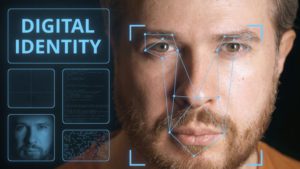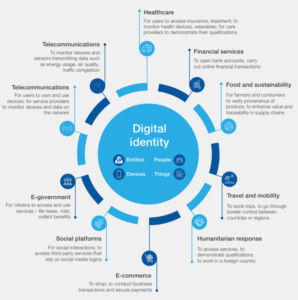WEF president praises India’s digital ID scheme for unlocking economic growth: TradeTech Forum
Running alongside the World Trade Organization (WTO) Ministerial Conference, the WEF launched its inaugural TradeTech Forum, which “aims to be a groundbreaking platform for facilitating global innovation in the realm of international trade technologies.”

In his opening address, WEF president Borge Brende praised India’s digital ID scheme, Aadhaar, as being “key for unlocking” economic growth in the country.
Digital ID was 'key for unlocking' economic growth in India, where 1.4 billion people have digital ID
– WEF President Borge Brende at TradeTech Forum in UAE, which runs alongside WTO Ministerial Conference, Feb 27, 2024 pic.twitter.com/EadkoTTsXX— Tim Hinchliffe (@TimHinchliffe) February 27, 2024
“India is growing this year, we think, more than seven percent; that was also the growth last year, and what was at the core of this growth in India?” asked Brende, to which he answered, “It was that they were very well-positioned in a situation where now digital trade and services do grow much faster. But they also started with something that was a key for unlocking this — the digital IDs.
So, as we know 1.4 billion people all have their unique digital ID, so when a grandmother in Assam wires money on her cell to her grandson or grand daughter in Delhi, it’s not a problem, and it’s occurring every day.”
The WEF president added that introducing competition in the mobile marketplace allowed for cheaper Wi-Fi, which alongside digital ID, created “the right enabling opportunities also for growth in trade, and in ecommerce, and services.”

India’s digital identity system Aadhaar is administered by the Unique Identification Authority of India (UIDAI).
According to the UIDAI, a person willing to enroll in Aadhaar “has to provide minimal demographic along with biometric information.”
In January, 2018, The Tribune revealed that in just 10 minutes the India-based newspaper was able to purchase “unrestricted access to details for any of the more than 1 billion Aadhaar numbers created in India.”
So, while the WEF president praises India’s Aadhaar system for unlocking economic growth, it also unlocked the personal details of a billion people that were available for purchase following a massive breach.
And the relationship between the WEF and the WTO is nothing new.
On April 12, 2022, the WTO and WEF published a report “encouraging the development of a global certification framework” for digital identity systems of persons and objects — both physical and digital. According to the report, The Promise of TradeTech: Policy Approaches to Harness Trade Digitalization:
“End-to-end trade digitalization requires a global approach to digital identities of natural and legal persons as well as of physical and digital objects sending or receiving electronic information to avoid creating digital identity silos.”
The report also adds, “TradeTech opens new opportunities to identify and track physical and digital objects. For instance, IoT devices can collect and monitor information in real-time,” and that “Traceability can also help to monitor the lifecycle of a product with a view to reducing fraud and theft or to assessing its contribution to a global circular economy.”
While the report is concerned with digital identity as it relates to digitalizing global trade systems, the seed has been planted to normalize the idea of treating people like products to be tracked, traced, and monitored for compliance with certain standards.
In partnership with the UAE Ministry of Economy and the Abu Dhabi Department of Economic Development, the WEF’s inaugural TradeTech Forum was a single day event and only the opening plenary was made available to the general public.
The WTO’s 13th Annual Ministerial Conference took place from February 26-29.
yogaesoteric
March 10, 2024
